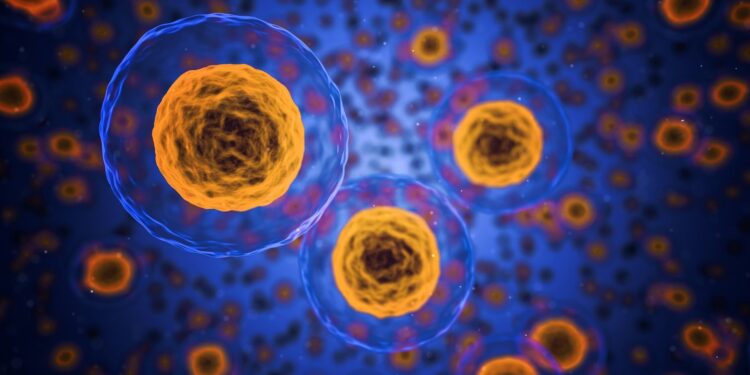Credit: Pixabay/CC0 Public Domain
Researchers at the University of Reading have contributed to a study that could lead to new treatments for a deadly cancer caused by a herpesvirus.
The study, published in Scientific signalingdiscovered that a protein called Kv1.3 acts as a crucial “gateway” for Kaposi’s sarcoma-associated herpesvirus (KSHV) to replicate and spread. KSHV causes Kaposi’s sarcoma, a cancer that commonly affects people with weakened immune systems, including those with HIV/AIDS.
Dr Mark Dallas, from the University of Reading’s School of Pharmacy, was part of the international team that made the discovery. The research was led by Professor Adrian Whitehouse from the University of Leeds.
“Think of Kv1.3 as a gateway into the cell that KSHV uses to bypass our body’s defenses,” says Dr. Dallas. “By understanding how this cellular gateway works, we’ve discovered a potential new way to block the virus and prevent cancer from developing.”
The researchers found that Kv1.3 acts like a cellular “dimmer switch,” adjusting the electrical charge across cell membranes. KSHV hijacks this mechanism and uses it to create an ideal environment for the virus to replicate while simultaneously dampening the immune system’s alarm signals.
“It’s like the KSHV virus turns off the lights and blocks the cell’s alarm system,” says Dr. Dallas. “This allows the virus to replicate unchecked, giving it a head start before the immune system becomes aware of an intruder.”
By blocking Kv1.3, the team significantly reduced the ability of the KSHV virus to replicate in laboratory tests. This suggests that drugs targeting Kv1.3 could potentially prevent the virus from spreading and causing cancer.
Kv1.3 inhibitors, which could be thought of as keys to lock this cellular door, are already being studied as treatments for other diseases, including psoriasis. Some have shown promise in clinical trials for KSHV-associated cancers.
KSHV-associated tumors account for about 2% of all cancers attributed to infection worldwide. This figure rises to 14% in countries with the lowest life expectancy. People living with HIV/AIDS are at higher risk, with KSHV causing cancer in about 1 in 20 people.
“For people with weakened immune systems, KSHV acts like a thief that strikes when the security system is down,” added Dr. Dallas. “Our results suggest that Kv1.3 inhibitors may prevent the virus from taking over our cells’ machinery to replicate and cause damage.”
More information:
Holli Carden et al, K v 1.3-induced hyperpolarization is required for efficient lytic replication of Kaposi’s sarcoma-associated herpesvirus, Scientific signaling (2024). DOI: 10.1126/scisignal.adg4124
Provided by the University of Reading
Quote: Researchers discover cellular ‘door’ exploited by cancer-causing virus (2024, August 20) retrieved August 20, 2024 from
This document is subject to copyright. Apart from any fair dealing for the purpose of private study or research, no part may be reproduced without written permission. The content is provided for informational purposes only.



